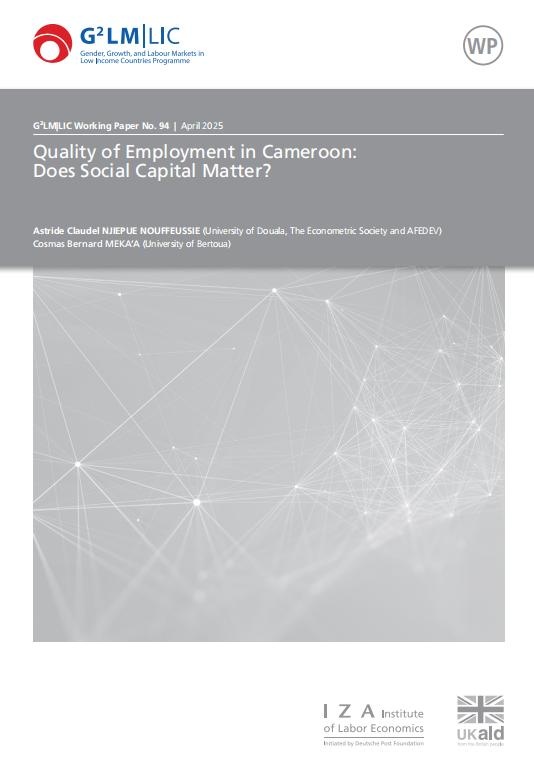Issues related to job quality are increasingly taking centre stage in professional and scientific circles because of the stakes involved although the determinants of job quality have been widely studied in the literature, little is known about how social capital (index) can affect job quality. To fill this gap, this article examines the effect of social capital on the quality of employment in Cameroon, using data from the Fourth Cameroon Household Survey carried out by the National Institute of Statistics (NIS) in 2014. Job quality is apprehended according to the multidimensional approach via the construction of an index from the Multiple Correspondence Approach (MCA) on four dimensions, namely remuneration, job security, working time and job satisfaction. We mobilize the double least squares model (2lsq), to address the issue of endogeneity bias associated with social capital. The empirical results show that social capital has a negative and statistically significant effect on the quality of employment in Cameroon. Our results suggest the need to raise awareness among users of social capital and to put in place policies that strengthen formal employment channels and reduce reliance on informal methods of insertion in the labour market.

Quality of Employment in Cameroon: Does Social Capital Matter?
- Astride Claudel NJIEPUE NOUFFEUSSIE
- Cosmas Bernard MEKA’A